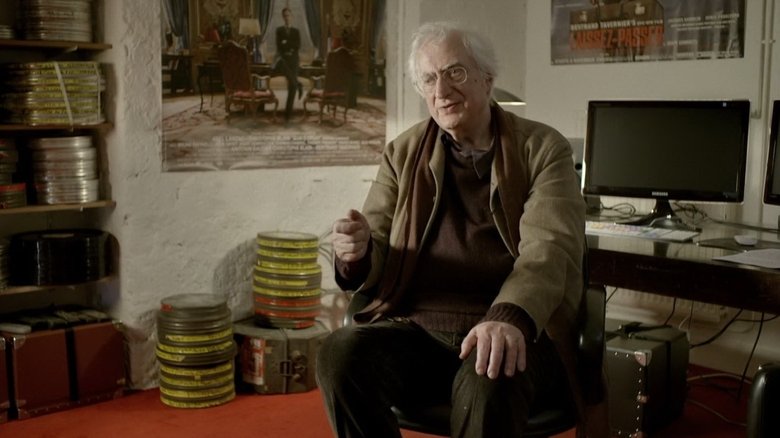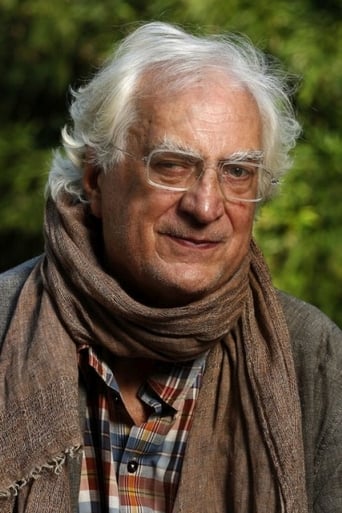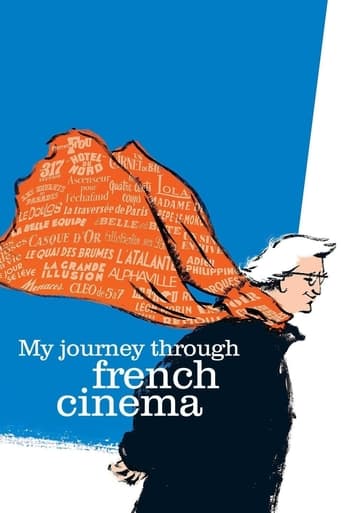
My Journey Through French Cinema
October. 12,2016Famous French director Tavernier tells us about his fantastic voyage through the cinema of his country.
Similar titles
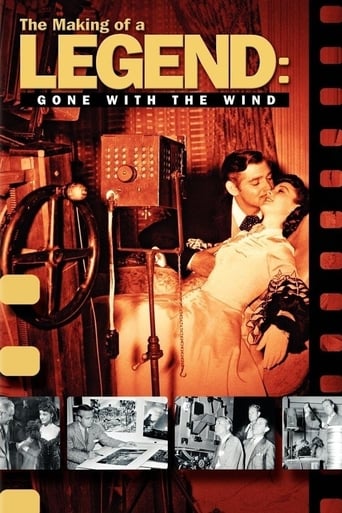
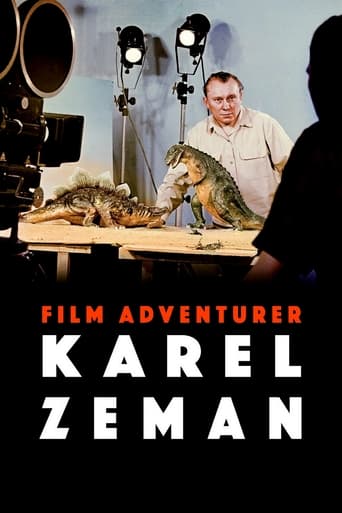
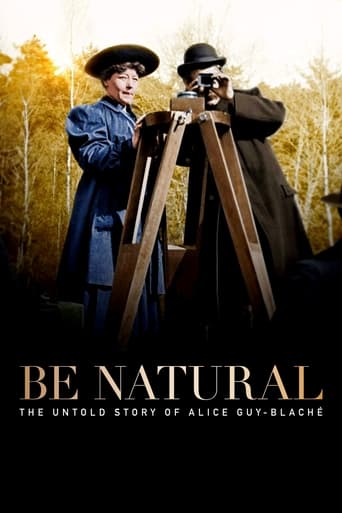

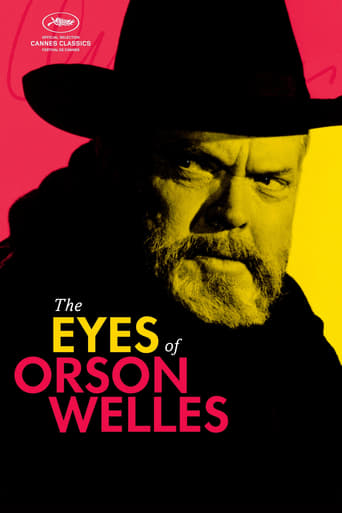

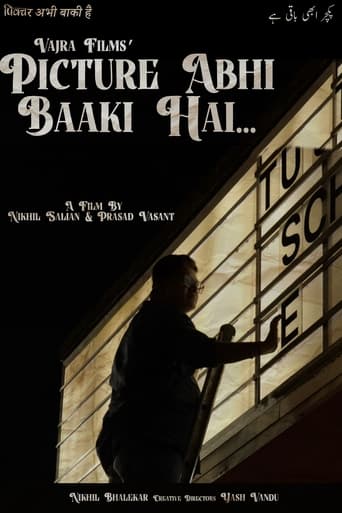
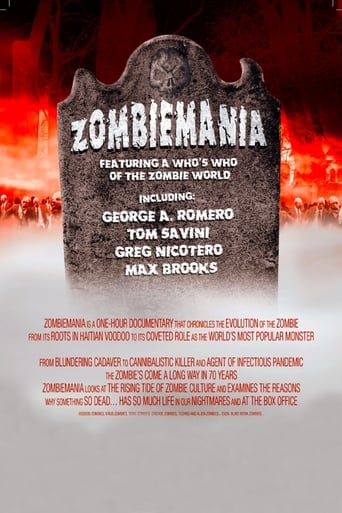
Reviews
You won't be disappointed!
Let's be realistic.
The acting is good, and the firecracker script has some excellent ideas.
Excellent and certainly provocative... If nothing else, the film is a real conversation starter.
First thing to bear in mind is that it is "TAVERNIER' s voyage ,not the history of the French cinema.But a good knowledge of it is necessary ,hence the disappointment of some people (if I had to watch a Korean director 's voyage through the Korean cinema ,I would yawn my head off).Bertrand Tavernier is certainly a great director and a fine connoisseur of the past masters of the seventh art.The first half ,to my eyes ,is the most interesting:it is composed of four parts :1)Jacques Becker :the first film he saw was "Dernier Atout" but his "Coup De Foudre" was "Casque D'Or";he passes over in silence the director's failures ("Ali Baba" and "Arsène Lupin") and insists on the fact that in a movie the characters are more interesting than the plot and we can only approve of Tavernier's opinion ,when he says that Becker's plots are minimal ,but that he creates extraordinary secondary characters (one remembers the uncle who studied in Oxford from "Edouard Et Caroline as much as Manda's fiancé in "Casque D'Or") ;besides ,these human beings work,a lesson contemporary directors should pay attention to)2)Jean Renoir : the extracts are well chosen: the admirable final sequence of "Une Partie De Campagne" ;this terrifying scene when Gabin tries to strangle Blanchette Brunoy in "La Bête Humaine" ; the advertising in "Le Crime De Monsieur Lange" which was oddly prophetic.Tavernier does not pass over in silence Renoir's debatable attitude at the beginning of WW2.3)Jean Gabin : the director wanted to show that he was a character actor and he's convincing.This part shows extracts of movies by less known directors :"La Nuit Est Mon Royaume" by Georges Lacombe in which he is cast against type as a blind man ;He restores to favor directors who were unfairly lambasted by the arrogant Nouvelle Vague : Gilles Grangier's "Le Desordre Et La Nuit" and "Gas Oil" ,and mainly Jean Delannoy's "Maigret Tend Un Piège " ,one of the best Simenon adaptations .The biggest flaw of the Gabin sequence is that ,although he mentions him, Tavernier seems to forget that it's Julien Duvivier,not Renoir,who created the myth.What have we got here ? From the thirties, a very tiny fragment of "La Belle Equipe " whereas this movie represents the 1936 zeitgeist ;and what about "La Bandera " which spawned Gabin-the-outcast (Carné would use in "Quai Des Brumes" )?4)Marcel Carné: "his collaborators,be they Jeanson or Prevert ,used to treat him condescendingly ,nay contempt.So did the notorious Nouvelle Vague although Truffaut would later make amends and say he would trade all his "filmography " for "Les Enfants Du Paradis ".And however,Tavernier concludes ,his masterpieces have stood the test of time gracefully .This part shows glorious Arletty in a flattering light .And to begin this sequence with the (dated ,admittedly ,although it was his next-to -last effort in the...seventies!)"Assassins De L'Ordre" ,is,as Tavernier says himself,a provocation.The second part is , IMHO, less exciting,although its several absorbing moments make it a worthwhile watch.1)The music in films ,focussing of Jaubert who passed away in 1940 ,after giving memorable scores ,notably "Carnet De Bal" and "La Bête Humaine" ;Tavernier points out that,unlike the American directors of the era, French ones would choose their music :hence the extraordinary scores of Bresson's "Un Condamné A Mort S'est Echappé "or Cocteau's "La Belle Et La Bête".2)Edmond T GReville :his work is not very known in France ;with the exceptions of "Menaces" and "L'Envers Du Paradis" ,none of the works I've seen ("brief ecstasy" "secret life" "Le Port Du Désir" "Les Menteurs" "L'accident") really filled me with enthusiasm.But Tavernier talks about two very attracting movies : "Remous" and "Le Diable Soufflé " which are ,alas,nowhere to be seen.3)Eddie Constantine sequence :"at a time when French thrillers were sluggish" ..Well Decoin ,sluggish? And what about Henri-Georges Clouzot ,totally absent in the whole documentary,not a single extract?Constantine's movies ,OK ,just for fans.Tavernier keeps harping about on Tarentino ,particularly "inglorious bastards " ,in which the American pays a tribute to Clouzot (twice).3)A long time is given over to Jean-Pierre Melville ,who was Tavernier's mentor;much good may it do to his numerous fans .Personally ,my favorite is "Leon Morin Prêtre " ,particularly for the Belmondo/Riva confrontation.4)As far as I am concerned, Jean-Luc Godard is not my cup of tea,but there's no accounting for taste .These pictures may be sublime ,after all...But as for me,the short appearance of Fritz Lang remains the only good moment.The Nouvelle VAguelette is also represented by Claude Chabrol (but the choice of the movies is poor)and the lovely "Cléo De Cinq A Sept".5)Claude Sautet's extracts ,on the other hand ,are excellent: the extraordinary "Classes Tous Risques" ,"Les Choses De LA vie ",an editing Tour De Force ,and his short return to thriller with "Max Et Les Ferrailleurs".Mini- sequences are devoted to Jean Delannoy's "Le Garçon Sauvage " ,to Pierre Schoendorffer 's "La 317 Eme section" and ,yes! to Truffaut.TO be continued as a miniseries on TV.....(8 more episodes)
It's hard not to smile at the giddiness in Bertrand Tavernier's voice as he recounts the French films that inspired him in his youth and fascinated him in his later years. "My Journey Through French Cinema" is a French-language film documenting Tavernier's love for the rich French history of film, reaching back as early as Jacques Becker and extending as close to the present as Jean Renoir and Lino Ventura. Tavernier's passion carries much of the film, as does a very well-edited and well-selected series of clips from the films in question. But ultimately, the film's own nature undermines it.This is by no means the most excitingly framed documentary ever made. It features only Tavernier as an interview subject, with famous French directors and actors popping up intermittently in historical footage.Tavernier wonderfully narrates the odyssey through his youth, and the amount of personal history he brings to it is charming, but there isn't enough effort put into the presentation outside of the film clips. It's fun to see Jean Claude Belmondo in "Léon Morin, Priest" and Alain Delon in "Le Samourai," but when we cut back to the same stale office setting with Tavernier for a few brief, fleeting seconds before being thrust back into a three-hour film history lecture, the film only nurses its disconnect between subject and audience.Consider "David Lynch: The Art Life" or "Listen to Me, Marlon," two documentaries of immense power that draw all of their flair, excitement, intrigue and depth from how they choose to approach their subjects. Here, Tavernier structures his film as a lecture. There, those documentaries are art. The final product of Tavernier's work is a passionate study of French cinema, but one that cannot hold appeal for those unfamiliar with "Le Grande Illusion," "Army of Shadows" or "Breathless."
The good thing is that Tavernier has eyes to follow this magnificent journey with a second part and I, for one, can't wait. Although it runs a tad over three hours I could have cheerfully sat through another three without a break. It's difficult to think of anyone off the top of my head who would be better equipped to undertake something like this though presumably there are people in the world as knowledgeable, erudite, and enthusiastic as Tavernier who probably has sprockets where you and I have veins. It helps enormously of course if you're a French cinema buff; I went with someone who recognised about three of the titles whilst I own DVD copies of roughly two thirds and have seen about half the other third. Initially I was chagrined by the amount of footage he devoted to the new wavelet that did its best in its three- four year hour in the sun to destroy French cinema but then I decided Tavernier - whose own films are as unlike the new wavelet as you can get, and actually employed Jean Aurenche and Pierre Bost, Truffaut's twin bete noirs - was merely offering a balanced view of his subject.One of the best things about it are the generous clips punctuating it offering lingering glimpses of the cream of French cinema. I watched it as part of the LFF and I can't wait for the next screening and the release of the DVD.
Top Streaming Movies











